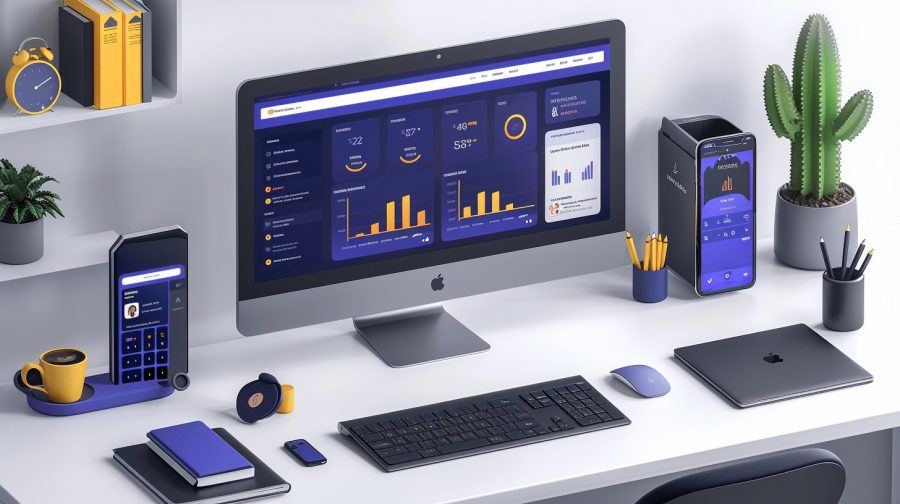Employers require a comprehensive understanding of their team’s tasks, activities, and progress, yet monitoring productivity often proves challenging. To address this, some businesses turn to employee monitoring software and computer monitoring software to gain insights into employee activity and enhance productivity. However, this software can negatively affect employee attitudes and morale.
In this analysis, we will analyze the advantages and drawbacks of employee monitoring and computer monitoring software, assisting business owners and managers in determining whether this level of oversight would be beneficial or harmful to their organizations.
What is Employee Monitoring?
Employee monitoring is a process employers use to keep an eye on activity data, aiming to boost individual productivity. Keeping tabs on employees’ progress can increase engagement, pinpoint bottlenecks, and ultimately raise profits.
The best way to monitor your team is by using employee monitoring software and tech. These tools provide real-time analysis and reports, helping employers spot inefficiencies and improve business processes.
Businesses use different types of employee monitoring technology, including:
- Website Tracking Software: This software lets you see employees’ browser history and online activity, showing which sites they visited and how long they spent on each.
- Application Monitoring Software: Keep track of employee activity on work devices and access saved documents and info within apps.
- Social Media Tracking Software: Check out employees’ social media activity to see how much time they spend on various platforms and monitor comments and messages.
- Email Tracking Software: Get access to employees’ emails, including received, sent, deleted, or archived messages.
- Keylogging Software: Keystroke logging tools track what employees are typing.
- Time-Tracking Software: Use time-tracking tools to monitor the number of hours your employees work.
- GPS Tracking Software: GPS tools track employees’ whereabouts using company vehicles, which is ideal for trucking and service industries.
- Video Surveillance Tools: Video surveillance tech helps monitor employees to prevent theft or sabotage of company property.
Advantages of Employee Monitoring
Employee monitoring brings several perks for businesses, like spotting suspicious activity, boosting cybersecurity, aiding disciplinary actions, improving team performance, fostering mindfulness, and keeping an eye on remote workers. It’s a budget-friendly way to enhance security, increase productivity, and support better decision-making.

What are the cons of employee monitoring?
Employee monitoring can harm company culture by lowering morale, adding to the workload, and risking sensitive data exposure. Legally, employers can monitor activities on company devices under the ECPA, but state laws differ, especially on consent and disclosure. Monitoring covers internet use, emails, social media, and video surveillance, with legal details varying by state. Ethical monitoring should involve transparency and consider employees’ mental well-being.
Monitoring employees fairly
While useful, tracking software raises significant privacy concerns. Unauthorized access to employees’ personal emails or sharing their private info can lead to serious legal problems. It’s a good idea to let your team know about monitoring practices and set up acceptable use policies so everyone understands how to properly use work devices and the internet during work hours. When monitoring is a known workplace policy, employees realize they’re not being singled out.
Here are some best practices for fair employee monitoring:
- Create clear monitoring policies. Specify which devices and areas will be monitored.
- Use employee monitoring agreements. Have employees sign an agreement acknowledging their understanding of your policies.
- Set clear ethical and behavioral expectations. Outline work ethics and behavior standards, like not sharing company info with outsiders.
- Follow state privacy and monitoring laws. Stick to state guidelines and consult a business attorney if needed.
- Monitor for valid reasons. Make sure monitoring benefits the company and isn’t for personal gain.
- Monitor employees equally. Apply the same level of monitoring to all employees to avoid claims of unfair treatment.




